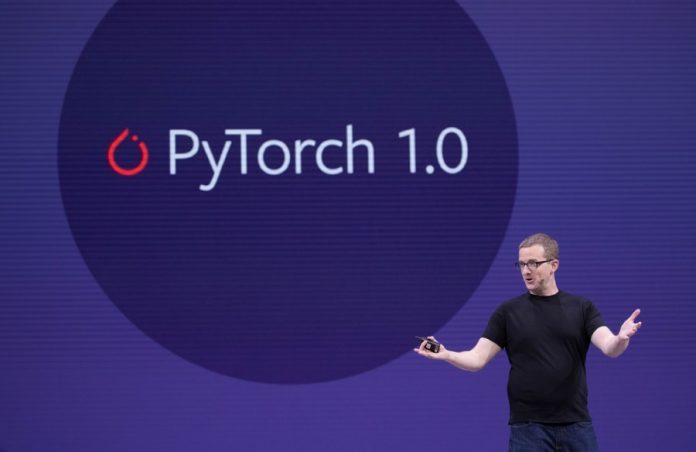Recently, Facebook unveiled its deep learning framework PyTorch 1.0 in the developer preview. The framework is composed of a series of integrations and tools for making it increasingly compatible with popular services such as Microsoft’s Azure Machine Learning, Amazon Web Services, and Google Cloud.
Companies like Intel, Qualcomm, Nvidia, and Arm are also incorporating PyTorch support for various benefits such as tools for tracking inference runtime and kernel library integrations.
The deep learning framework was first introduced to the public in January 2017 and to date, it has been downloaded over a million times. On the other hand, Facebook first announced PyTorch 1.0 back in May 2018 at the F8 developer conference. It comprises deeper integration with Facebook’s ONNX and Caffe2.
In May, Facebook CTO Mike Schroepfer and VP Bill Jia promised PyTorch 1.0 would come with pre-trained tools, libraries, and models to provide developers with additional options and flexibility.
To satisfy such needs, Google Cloud is expected to launch PsyTorch support for some of its services. Also, Facebook revealed recently in a blog post that, it is working with Google to create tensor processing units, specifically for PyTorch users.
What’s more, Amazon’s SageMaker is anticipated to give PyTorch users pre-configured environments for various things including automated model tuning.
Microsoft, which first collaborated with Facebook a year ago on the creation of the ONNX open-source framework to develop AI models made with distinct frameworks to be increasingly portable, is expected to launch some new resources for developers utilizing PyTorch.
“Azure Machine Learning service now allows developers to seamlessly move from training PyTorch models on a local machine to scaling out on the Azure cloud. For data science experimentation, Microsoft is offering preconfigured Data Science Virtual Machines (DSVM) that are preinstalled with PyTorch.
For developers looking to start exploring PyTorch without having to install software and set up a local machine, Azure Notebooks provides a free, cloud-hosted Jupyter Notebooks solution set up with PyTorch tutorials,” Joe Spisak, Facebook ’s product manager, said recently in the blog post.
Udacity is expected to unveil free online courses aimed at showing how to utilize PyTorch. Furthermore, Fast.ai, an applied AI enterprise company, recently introduced Fast.ai 1.0, which is an open-source deep-learning library that has been developed on top of PyTorch.
PyTorch 1.0 version will be available in developer preview, primarily as part of the first-ever PyTorch developer conference to be held in San Francisco.
Source VentureBeat
